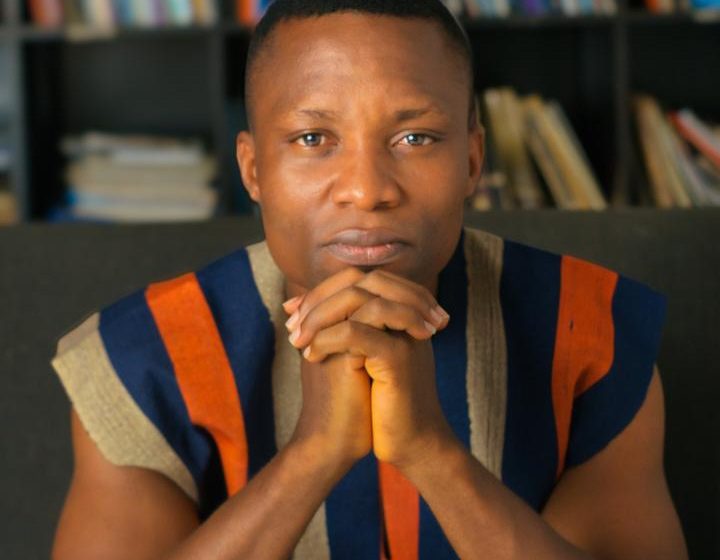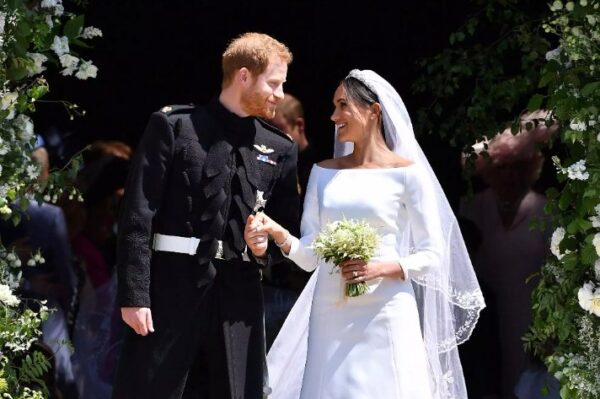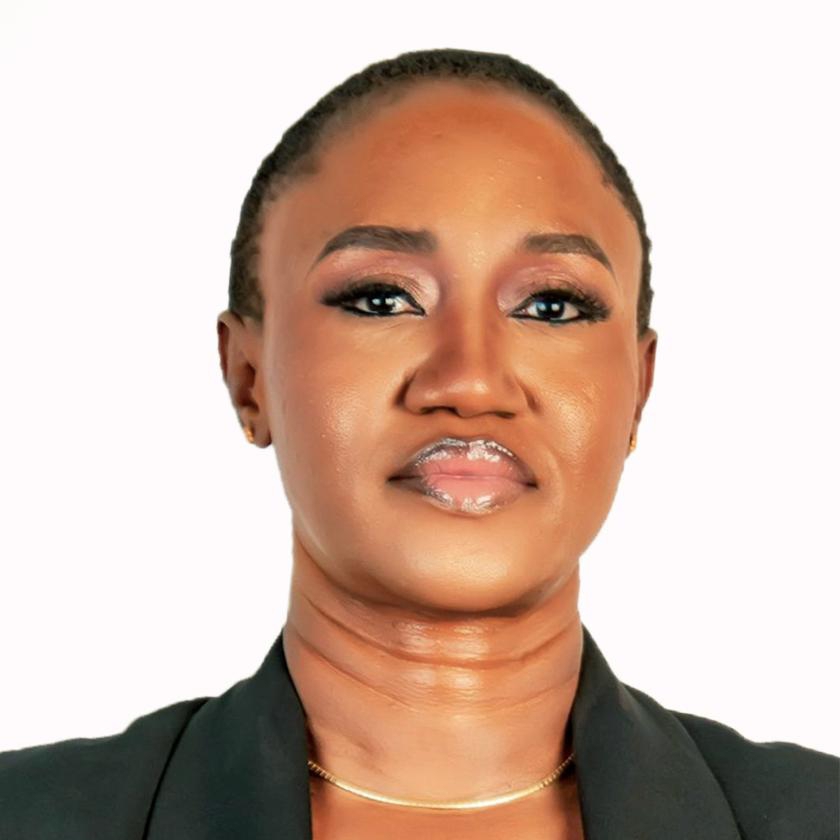INTERVIEW: Discrimination against girls, women inspired ‘Lost But Found’, says filmmaker Oludotun

Oludotun Ololade Olufisayo is a highly accomplished and award-winning filmmaker. He specialises in cinematography and directing. He recently made the headlines for winning the inaugural edition of Native Shorts Creatives Competition for his short film ‘Lost But Found’.
In an interview with CrispNG, he reflects on his career as a filmmaker, the inspiration behind his latest award-winning short film and future projects.
CrispNG: Please, tell us about your award-winning short film — ‘Lost but Found’ — and what inspired the movie
Oludotun: The short film ‘Lost But Found’ was inspired by the global issues of girls and women subjugation and the urgent need to address this pervasive problem.
It delves into the struggles faced by young girls who are denied access to education, opportunities, and equal rights due to societal barriers and gender-based discrimination. These issues are not limited to a specific region or country but resonate globally.
The United Nations, recognizing the significance of addressing these challenges, has taken various steps to promote gender equality and empower girls and women. One of the key initiatives is the Sustainable Development Goals (SDGs), specifically Goal 5: Gender Equality. This goal seeks to eliminate gender disparities and ensure equal rights and opportunities for girls and women worldwide.
Under the SDGs, the United Nations aims to tackle issues such as gender-based violence, child marriage, limited access to education, and economic empowerment for women. The organization works with governments, civil society, and various stakeholders to implement policies, programs, and interventions that promote gender equality and protect the rights of girls and women.
Additionally, the United Nations supports initiatives that aim to eliminate harmful traditional practices, change societal norms, and provide support systems for girls and women. It encourages inclusive and equitable education systems that enable girls to access quality education, develop skills, and fulfil their potential.
While progress has been made, much work remains to be done. The United Nations continues to advocate for policy changes, legal reforms, and investments in gender equality initiatives. By raising awareness, promoting dialogue, and fostering collaborations, the organization aims to create a world where girls and women are empowered, valued, and given equal opportunities to thrive.
The short film ‘Lost But Found’ aligns with the United Nations’ vision and efforts to address the subjugation of girls and women. Through its storytelling and powerful message, the film aims to shed light on these global issues and inspire positive change. By raising awareness, sparking conversations, and fostering empathy, it contributes to the collective efforts to create a more inclusive, just, and equal world for all.
‘Lost but Found’ also symbolizes my journey of finding my true purpose in filmmaking. It serves as a metaphorical representation of how we can get lost in other pursuits but eventually find our way back to our passions and aspirations. The film highlights the importance of hope, perseverance, and the transformative power of determination.
CrispNG: How did you feel winning the Nativ Shorts Creatives competition, and what does it mean for you?
Olodotun: Winning the Nativ Shorts Creatives competition was an incredible honour and a deeply fulfilling moment in my career as a filmmaker. It was a validation of the hard work, creativity, and dedication that went into the creation of ‘Lost but Found.’ The recognition from the competition not only affirmed my abilities as a storyteller but also provided a platform to amplify the film’s message and reach a wider audience.
This achievement means a lot to me on a personal and professional level. It fuels my passion and motivates me to continue pushing boundaries and creating impactful stories. Winning the competition serves as a testament to the power of storytelling and the potential for positive change that lies within the medium of film.
CrispNG: What challenges did you face during the production of ‘Lost but Found’?
Oludotun: The production of ‘Lost but Found’ presented several challenges that tested our resilience and resourcefulness. One significant challenge was securing adequate funding to bring the project to fruition. Independent filmmaking often requires creative solutions and strategic partnerships to overcome financial constraints, hence we partnered with FRAMEEYE, a film studio in Lagos state, Nigeria to supply us with all needed equipment and they graciously came through for us.
Another challenge we faced was the logistics of shooting on location, particularly capturing the authenticity of the story in diverse settings. This involved coordinating with local communities, navigating logistical hurdles, and ensuring the smooth execution of the production.
Additionally, as with any creative endeavour, there were artistic challenges to overcome. It was essential to strike the right balance in portraying the struggles faced by the protagonist while maintaining a sense of hope and empowerment throughout the film.
Despite these challenges, the passion and dedication of the entire team fuelled our determination to overcome obstacles and deliver a powerful and visually stunning film.
CrispNG: Tell us about your career as a filmmaker; how it started, as well as the good, bad, and ugly experiences
Oludotun: My interest in filmmaking was ignited during my childhood, where I was captivated by the enchanting tales told by my parents and the comic books that were popular during the 80s and 90s. Drawing became a favourite pastime, and I fondly remember sketching characters such as Tom and Jerry, Fido Dido of 7Up, and Voltron. These childhood experiences, along with my creative inclination, gradually nurtured my passion for art.
Having grown up, my journey as a filmmaker began with a passion for storytelling and a fascination with the power of visual arts. It started with my background in web development and animation, which eventually led me to explore the art of filmmaking. The transition required learning new skills, attending film school, and embracing the challenges and rewards of this dynamic industry.
Throughout my career, I have experienced the thrill of creating meaningful stories, collaborating with talented individuals, and seeing my work touch the hearts of audiences. The joy of receiving recognition and awards for my films has been incredibly rewarding and motivating.
However, the path of a filmmaker is not without its share of challenges. Financial constraints, limited resources, and navigating the competitive nature of the industry can be demanding. Filmmaking requires tenacity, resilience, and the ability to adapt to ever-evolving technologies and trends.
Yet, the challenges have also provided invaluable learning experiences that have shaped my growth as a filmmaker. They have taught me the importance of collaboration, strategic planning, and perseverance in the face of adversity. Each obstacle has strengthened my passion and determination to overcome hurdles and create impactful films.
CrispNG: What contributions do you intend to make in the movie industry, and where do you see yourself in 5 years?
Oludotun: In the movie industry, my primary goal is to contribute to the art of storytelling by creating films that entertain, inspire, and provoke thought. I aspire to shed light on social issues, amplify underrepresented voices, and promote empathy and understanding through my work.
Furthermore, I am passionate about nurturing and mentoring emerging talents in the industry. I believe in the power of collaboration and sharing knowledge to uplift the entire filmmaking community. By supporting fellow filmmakers, I aim to contribute to the growth and development of the movie industry, both in Nigeria and internationally.
In 5 years, I see myself as an established filmmaker with a diverse portfolio of impactful films. I envision expanding my creative horizons, exploring different genres, and collaborating with talented artists and industry professionals. Additionally, I hope to have made a significant contribution to the advancement of the Nigerian movie industry, fostering an environment that nurtures talent and promotes innovation.
CrispNG: What other projects are you working on?
Oludotun: In addition to ‘Lost but Found,’ I am currently involved in several exciting projects. One of the projects I am working on is the extended version of ‘Lost but Found.’ We are expanding the film to tell the story in more detail and reach a wider audience. We plan to take the film on a festival run around the globe, followed by a theatrical release and distribution on streaming platforms.
Additionally, I am in the early stages of developing a new feature film that explores themes of identity, leadership and terrorism. This project will allow me to further challenge myself creatively and continue contributing to the rich tapestry of storytelling in the movie industry.
CrispNG: What’s the best advice you’ve received regarding your filmmaking career?
Oludotun: The best advice I’ve received regarding my filmmaking career is to stay true to my voice and vision as an artist. It’s important to embrace my unique storytelling style and not try to imitate others or conform to the expectations of the industry. Authenticity and originality are key in standing out and making a lasting impact.
Furthermore, I’ve been advised to never stop learning and expanding my knowledge of the craft. The filmmaking industry is constantly evolving, and staying informed about the latest technologies, trends, and techniques is essential to remain relevant and innovative.
Lastly, I’ve been encouraged to build a strong network of collaborators and mentors. Surrounding myself with talented individuals who share my passion and vision can provide invaluable support, guidance, and opportunities for growth.
By following these pieces of advice, I am able to navigate the challenges of the industry, remain true to my artistic vision, and continuously push the boundaries of my creativity as a filmmaker.






